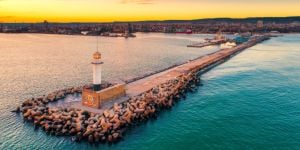US Citizen moving to Bulgaria still working for current employer in US
Make your relocation easier with the Bulgaria expat guide

Work in Sofia
There are various ways to find a job in Sofia. Here are some tips to guide you through your job search.

Work in Varna
Looking for a job in Varna? Find out what are the most promising sectors for foreigners in this article.

Giving Birth In Bulgaria
If you find yourself pregnant in Bulgaria, you may be wondering if you will have to head home to have your baby. ...

Opening a bank account in Bulgaria
Do you wish to open a bank account in Bulgaria? Find out how to proceed in this article.

Taxes in Bulgaria
Do you have to pay taxes in Bulgaria? How to proceed and what are the conditions attached? Find out in this ...

Education in Bulgaria
Educational Structures and Background:

Accommodation in Plovdiv
Plovdiv is a very popular city with expatriates, more particularly with students. Find out how to find ...

Accommodation in Bulgaria
Looking forward to settle in Bulgaria? Find out in this article how to proceed to find accommodation in the ...



